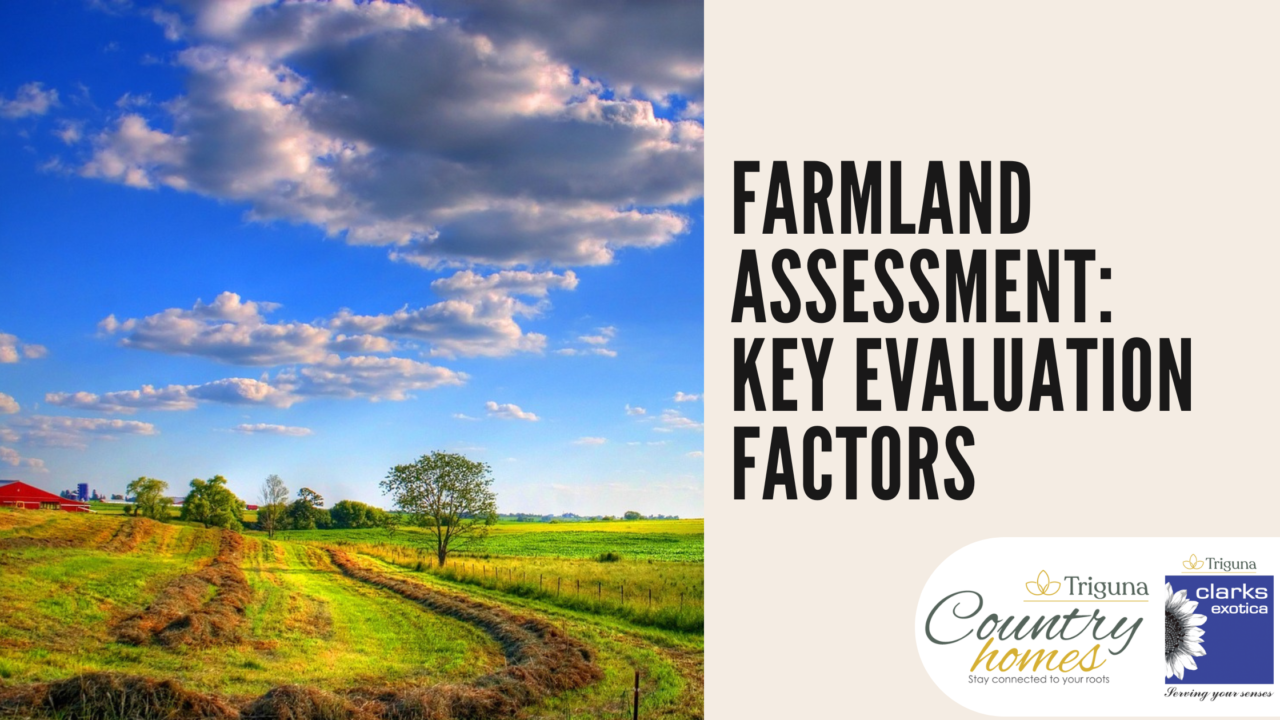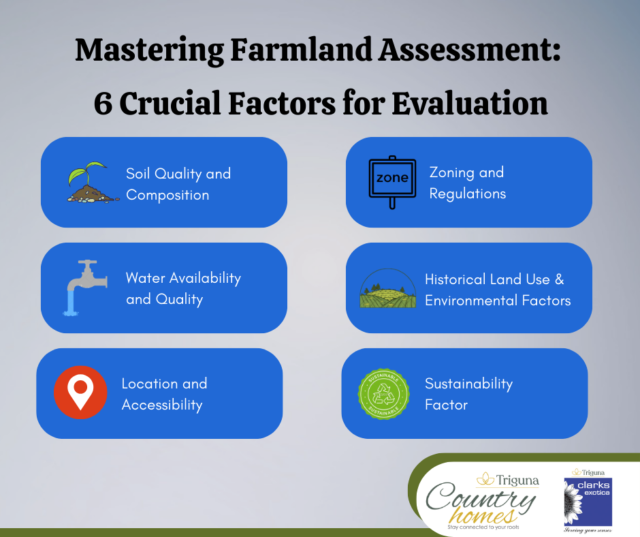In the realm of farmland acquisition, knowledge is power. And to make you resourceful, here is a quick and insightful guide that will help you gain the expertise needed to make informed decisions and embark on a farmland venture that not only aligns with your vision but also maximizes its long-term benefits. It goes beyond the question of what you plan to do with your farmland and delves into the critical aspect of understanding what type of farmland holds the greatest potential for your specific goals.
1. Soil Quality and Composition

- Assess the soil quality and composition of the farmland. Soil tests can reveal important information about nutrient levels, pH balance, and suitability for specific crops or livestock. For example a pH level between 6.5 and 7.5 is most suitable for most of the crops and vegetation.
- Different soil types are better suited for different agricultural purposes, so understanding the land’s soil profile is essential. Of all the types in India, Alluvial soil is most fertile.
2. Water Availability and Quality

- “Water is the driving force of all nature” (Leonardo da Vinci), and thus evaluation and assessment of availability and quality of water sources on the property becomes critical. Adequate water is important for not only irrigation, livestock, and overall farm operations but if you are maintaining a vacation house in your farmland, its crucial for smooth functioning of day to day activities.
- Quality matters too. Contaminated water can harm crops and pose health risks. Water quality testing is essential, especially in regions with industrial activities that may affect water sources.
- Check for reliable access to wells, rivers, or irrigation systems, and consider the water rights and any water use restrictions that may apply.
3. Location and Accessibility
 Whether you’re in your 30’s or approaching retirement, ease of access to your farmland remains paramount. You wouldn’t want to spend your precious days commuting between your residence and farmland; proximity is key for enjoying your serene retreat.
Whether you’re in your 30’s or approaching retirement, ease of access to your farmland remains paramount. You wouldn’t want to spend your precious days commuting between your residence and farmland; proximity is key for enjoying your serene retreat.- Consider the location of the farmland in relation to markets, transportation, and infrastructure. Proximity to markets and distribution channels can impact your ability to sell products efficiently.
- Accessibility via well-maintained roads and highways is essential for transporting goods and accessing necessary supplies.
- Furthermore, it’s essential to choose a location with reliable mobile network accessibility, as staying connected to work, family, and social connections is important. Weekends often involve spending quality time with loved ones through voice or video calls, making network availability a valuable consideration.
4. Zoning and Regulations

- “Forewarned is forearmed” emphasizes the importance of being well-informed about local regulations when buying farmland
- Understanding local zoning regulations and land-use policies is paramount for farmland buyers in India.
- India’s diverse states have varying regulations. Agricultural land use is often subject to change based on government policies. Zoning designations determine whether land can be used for agriculture, residential purposes, or other uses. Compliance with these regulations is critical to avoid legal complications. Ensure that the property is zoned for agricultural use and investigate any restrictions or permits required for your intended farming activities
5. Historical Land Use and Environmental Factors

- Examine the historical use of the land and any potential environmental factors that may affect your farming operations.
- Investigate whether the land has a history of chemical use, contamination, or environmental hazards. Understanding these factors can help you plan for land remediation or sustainable land management practices.
- Additionally, understanding land degradation and erosion risks in hilly areas is crucial for sustainable land management.
6. Sustainability Factor

- As sustainability gains prominence, evaluating a farmland’s potential for sustainable practices is essential.
- Sustainability in farmland assessment assesses the land’s ability to support agriculture while minimizing environmental impact. This factor analyzes practices like soil health maintenance, water conservation, and responsible chemical use.
- Ultimately, a focus on sustainability in farmland assessment is crucial for preserving both the land’s productivity and the planet’s health.
In summary, evaluating farmland requires a comprehensive assessment of soil quality, water availability, location, zoning regulations, and environmental considerations. Taking these key factors into account will enable you to make informed decisions when purchasing farmland and set the foundation for a successful and sustainable agricultural venture.



